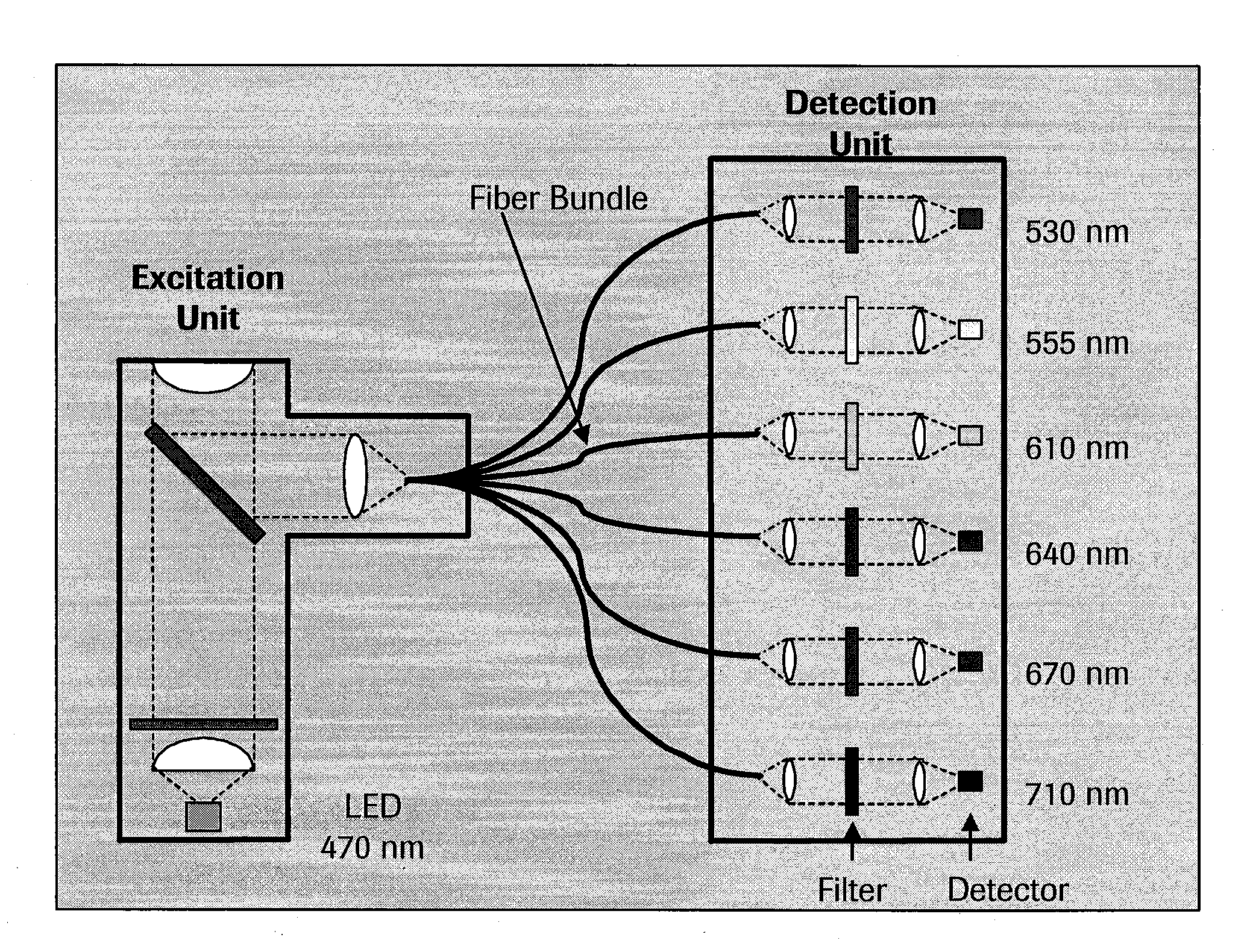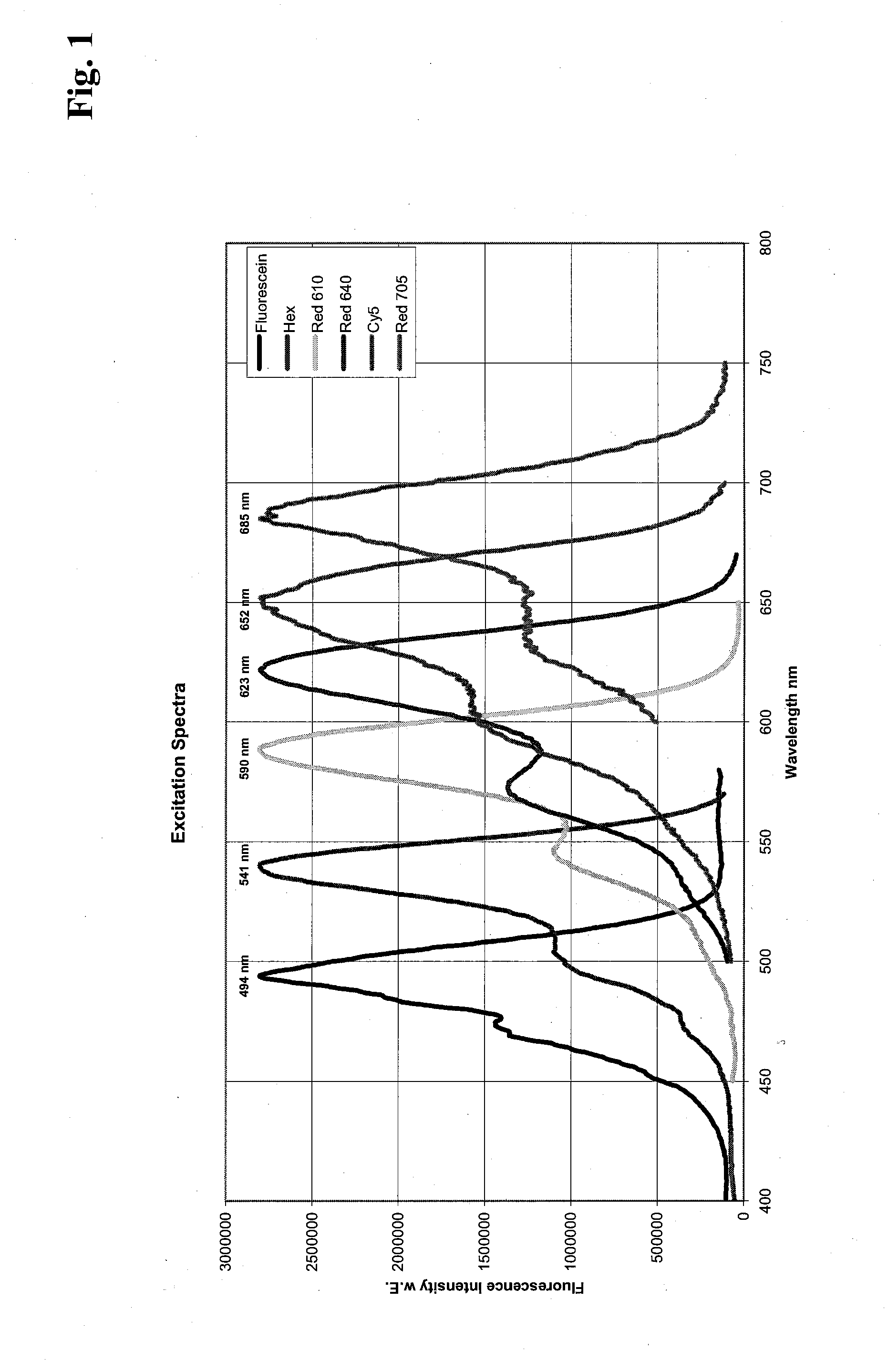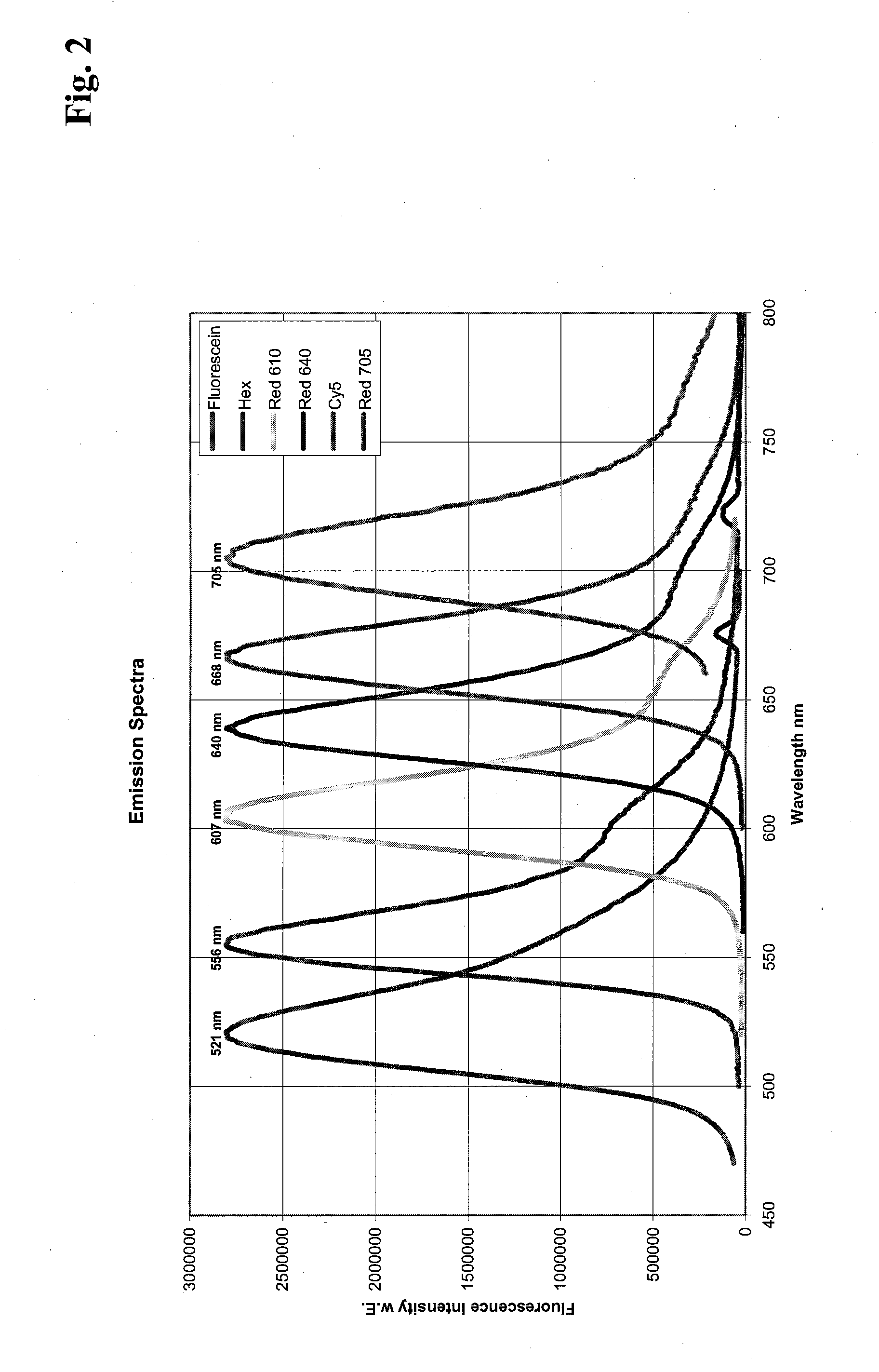System For Multi Color Real Time PCR
a multi-color, real-time pcr technology, applied in the field of real-time pcr, can solve the problems of no respective successful application protocol published, no system disclosed for performing multi-pex experiments with a higher degree of complexity, and the design of appropriate fret hybridization probe sequences may sometimes be limited
- Summary
- Abstract
- Description
- Claims
- Application Information
AI Technical Summary
Benefits of technology
Problems solved by technology
Method used
Image
Examples
example 1
[0205]Quantitative real time PCR of Factor V DNA using different pairs of FRET hybridization probes labeled with different fluorescent compounds
[0206]For amplification of a Factor V DNA fragment, 4 different 100 μl real time PCR reaction mixtures were set up as follows:
106 copies of a plasmid containing Factor V gene 3 mM MgCl2500 nM eachprimers200 nMFRET 3′Hybridization Probeaccording toSeq. A200 nMFRET 5′Hybridization Probeaccording toSeq. B1, B2, B3 or B4, respectively.
[0207]In addition, PCR components from the LightCycler DNA Hyb Probes Kit (Roche Applied Science, Cat. No. 2158825) were used.
[0208]Primers and probes were used as follows:
Primer FactorV, forward:(Seq. ID. No: 1)5′-GAG AGA CAT CGC CTC TGG GCT A-3′ (22-mer)Primer FactorV, reverse:(Seq. ID. No: 2)5′-TGT TAT CAC ACT GGT GCT AA-3′ (20-mer)A: 3′Fluorescein labeled Hybridization Probe(SEq. Id. No: 3)5′-AAT ACC TGT ATT CCT CGC CTG TC-3′ (23-mer)(B1-B4: Seq. Id. NO: 4)B1: 5′ Red610 Hybridization Probe5′-AGG GAT CTG CTC TTA...
example 2
[0212]4-Color Melting Curve Analysis
[0213]A 479 by fragment of a specific plasmid containing a fragment of the human NAT-2 gene encoding N-Acetyl-Transferees isozyme was amplified with specific primers and detected by fluorescence, using 4 different specific pairs of FRET Hybridization
[0214]Probes. Whereas three probes were labeled at the 3′-end with Fluorescein, four detection probes were labeled 5′ either with Light- Cycler-Red 610, 640, 705 or Cy5 and modified at the 3′-end by phosphorylation. A schematic drawing of this experimental set up is shown in FIG. 6. As it can be deduced from the figure, there were four differently labeled FRET acceptor probes, but only three detection sites. This resulted in a competition of annealing of two detection probes.
[0215]Assay conditions were basically the same as disclosed in example 1 with the alteration that 3×106 copies of target DNA were used.
Primer forward:(Seq. Id. No: 5)5′-TGC CTT GCA TTT TCT GCT T-3′ (19 mer)Primer reverse:(Seq. Id. ...
example 3
[0219]Dual Color TaqMan Detection
[0220]A LightCycler instrument according to the best mode of the invention provided all means for sensitive detection of dual color TaqMan assays. The established TaqMan dye FAM and HEXs were well excited with the 470 nm LED and after using the instrument's color compensation function could differentially be identified in the 530 nm and 560 nm detection channels with high sensitivity. Transfer of dual color TaqMan assay protocols to the instrument according to the invention was simply performed by supplementing established assay conditions with BSA.
[0221]Different examples of successful dual color amplification and detection are shown in FIG. 8. FIG. 8a shows that in mono-color experiments using either FAM or HEX, a detection sensitivity of about 1 copy / μl for dual color TaqMan assays was obtained. (Only negative controls did not result in a significant increase in fluorescence after the PCR reaction). FIG. 8b shows a dual color experiment, wherein a...
PUM
| Property | Measurement | Unit |
|---|---|---|
| wavelengths | aaaaa | aaaaa |
| wavelengths | aaaaa | aaaaa |
| wavelengths | aaaaa | aaaaa |
Abstract
Description
Claims
Application Information
 Login to View More
Login to View More - R&D
- Intellectual Property
- Life Sciences
- Materials
- Tech Scout
- Unparalleled Data Quality
- Higher Quality Content
- 60% Fewer Hallucinations
Browse by: Latest US Patents, China's latest patents, Technical Efficacy Thesaurus, Application Domain, Technology Topic, Popular Technical Reports.
© 2025 PatSnap. All rights reserved.Legal|Privacy policy|Modern Slavery Act Transparency Statement|Sitemap|About US| Contact US: help@patsnap.com



